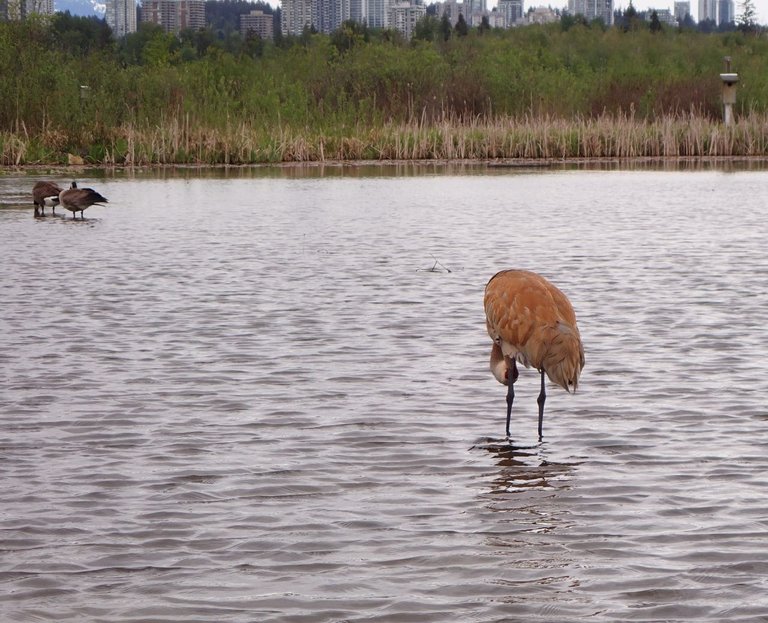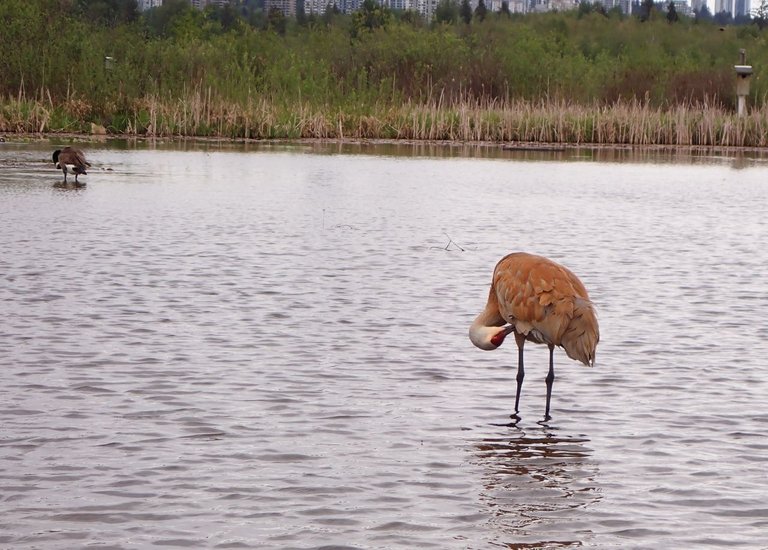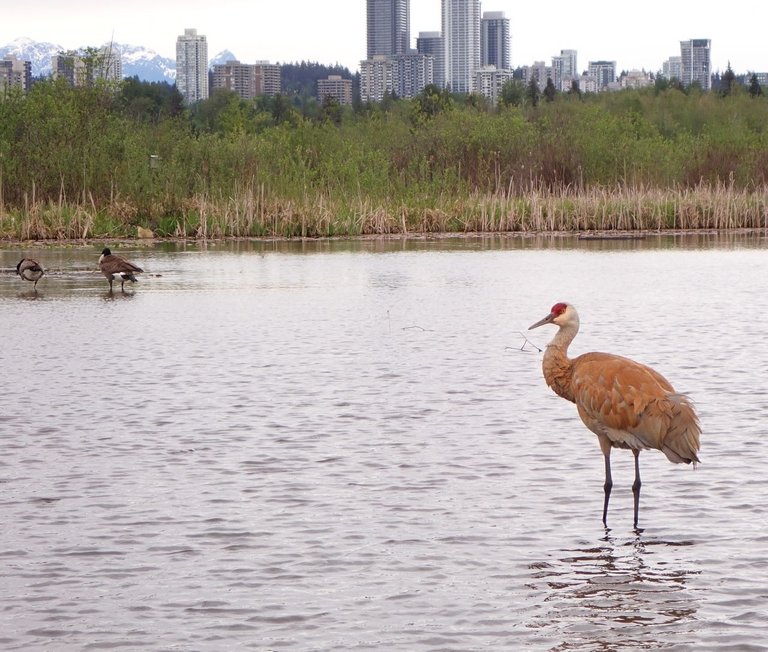Happenings in the Lake 1
Ah, the mighty crane, of which I knew absolutely nothing. So, I fished out my trusty Pocket Birds of Canada (Bird, 2016) and was surprised to find out there are two kinds of cranes up here: Whooping and Sandhill. This one happens to be the latter. You can recognize it by the rusty feathers, which according to my reference guide, the bird acquires after poking around in the iron rich mud with its long bill then transferring it when preening its feathers. They also have a red crown, which looks rather regal if I may say so. Apparently they have some cool courtship dances and loud vocalizations, but this particular one was the stoic silent type.

Notice the Canada goose checking out the crane, dare I say coquettishly? She's probably thrilled by his shaggy feathers and long black legs

Is it my imagination or is that goose up there synchronizing her movements with the crane?
They are ground nesters who lay one single brood with one single egg. Their diets consists of plants, grain, and aquatic critters. This is a lake with marshy surroundings, so it's perfect for the crane. The wingspan is a whooping (ahem!) 7 1/4 ft (2.2 m) (Bird, 2016).

I think there's more than meets the eye in this lake
Resource
Bird, David M (Editor). 2016. Pocket Birds of Canada.
Images by @litguru
Thank you for your information about that birds.
Best of luck🤞😊
You're very welcome! It's an amazing bird.
🥰👍
Their diets consist in plants? Wow
They like to eat the shoots apparently.
What a beautiful crane! I have never seen a pink one, like the flamingos. It is beautiful!😍
They're amazing. This one was very peaceful. I walked across a pier and got closed to it. It was a great experience to be so close to it.
How nice that you were able to photograph it and bring it back for us to see! ❤️❤️
Beautiful bird ♥️ Are they rare around there?
Can I please use one of the pictures in Let Our Picture Tell Your Story, giving you full credit?
This post has been manually curated by the VYB curation project
Thank you!
They're all over Canada, and they migrate throughout the year. According to my guide, they're grouped into "Lesser" and "Greater" populations based on their habitat and migration patterns. They're very cool birds.
Go ahead and feel free to use the image you wish.